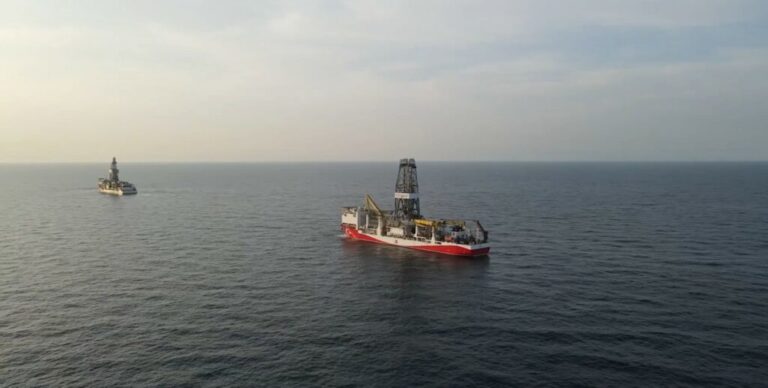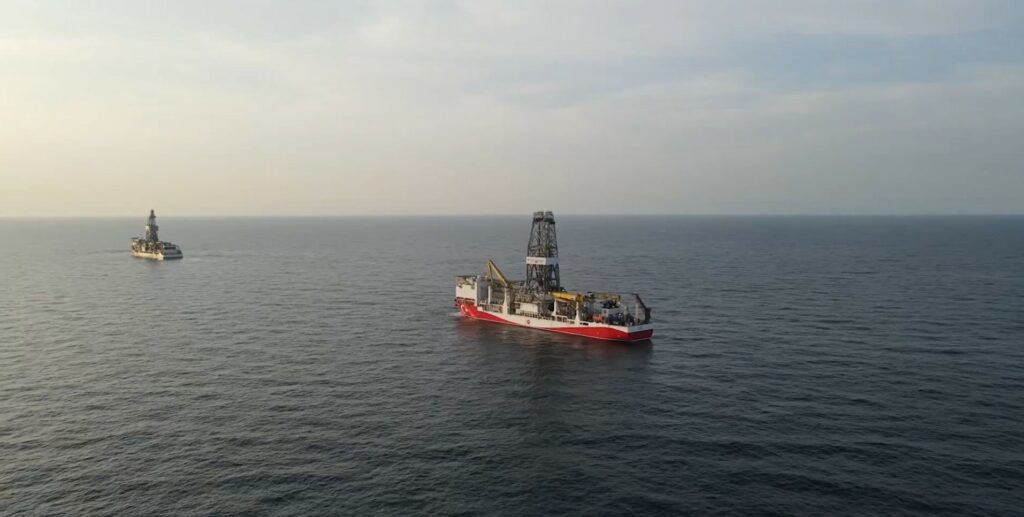Türkiye reinforces gas ties with US and Azerbaijan, notches up renewable electricity milestone
In the wake of the BOTAŞ-ExxonMobil liquefied natural gas (LNG) deal, Türkiye has taken steps to strengthen its energy bonds with the United States (U.S.) and Azerbaijan in a bid to fortify not just its own but also Europe’s energy security. On a mission to reach energy independence, the country is determined to raise the renewable electricity production bar, following a recent spike in the green electricity generation from solar and wind power.

After engaging in negotiations with ExxonMobil, the Turkish Petroleum Pipeline Corporation (BOTAŞ) has inked a deal, valued at around $1.1 billion, with the U.S.-headquartered energy giant for 2.5 million tons of LNG per year for a decade. The signing ceremony, held in Washington, was attended by Abdulvahit Fidan, BOTAŞ General Manager, and Matthew R. Chandler, ExxonMobil LNG Global President.
Alparslan Bayraktar, Türkiye’s Minister of Energy and Natural Resources, who also attended the signing ceremony, explained: “We signed a cooperation agreement regarding LNG trade between BOTAŞ and ExxonMobil in Washington, where we came to make various contacts. The USA is one of the important countries from which we currently supply LNG.
“With this agreement, which is planned to be long-term, we will take another step in diversifying our resources. We are among the few countries in the world with our gasification capacity. We will continue to contribute to the energy supply security of both our country and our region.”
During his visit to Washington, Bayraktar not only met with Caspian Policy Center Board members but also with Senator Joe Manchin, Chairman of the Energy and Natural Resources Committee, representing the state of West Virginia, with whom he discussed the topics that will improve the relations between the two countries.
Türkiye, which has seven international natural gas pipelines, five LNG facilities, including three floating storage and regasification units (FSRU), and two underground natural gas storage facilities, aims to become a key gas hub in the region, excel as an exporter and be an effective manager of the gas it provides.
In addition, Türkiye’s Minister of Energy and Natural Resources met with Jennifer Granholm, U.S. Energy Secretary, which led to the launch of the Energy and Climate Dialogue Program between the two countries. This program will enable the discussion of steps that need to be taken jointly to develop energy cooperation between Türkiye and the U.S. with activities carried out in this direction, enabling public and private sector representatives to come together.
“Türkiye and the U.S. have several potential areas of cooperation. The number of areas is growing as energy transition has become an undeniable reality of the industry. Areas like renewables, critical minerals and LNG are among many. Not only in our respective countries, but we can also cooperate in third countries and in different regions,” said Bayraktar.
As the deal with ExxonMobil has boosted Türkiye’s LNG trade with the United States, Bayraktar believes this trade will strengthen the economic ties between the two countries and open the door to new cooperation opportunities. While explaining that Türkiye has diversified its resources and made intensive investments in energy infrastructure to meet the increasing energy demand, Bayraktar emphasized the moves toward creating a cleaner and more sustainable energy environment for everyone.
With President Recep Tayyip Erdoğan revealing the net zero emission target for 2053, Bayraktar noted that Türkiye’s strategic geographical location at the intersection of global energy markets offers attractive investment opportunities. As a result, he is optimistic about the partnership with the U.S. which he believes will contribute to “greater cooperation between the energy sectors of the two countries and to ensure energy supply security.”
More gas from Azerbaijan to flow into Türkiye
Aside from bolstering LNG bonds with the United States, Türkiye has also struck an agreement with Azerbaijan regarding the transportation of Turkmenistan natural gas via Azerbaijan and Georgia. To this end, Bayraktar had a meeting with Mikail Cabbarov, Azerbaijani Minister of Economy, in Istanbul, where the duo signed a cooperation agreement in the natural gas arena, pledging to raise gas capacity via several pipelines.
During the signing ceremony, BOTAŞ’ General Manager and Rövşan Najaf, President of the State Oil Company of the Republic of Azerbaijan (SOCAR), penned a deal regarding the gas supply from the Iğdır-Nakhchivan natural gas pipeline. According to Bayraktar, this has moved the relations between the two countries to a new dimension and will allow for additional gas volumes from Azerbaijan along with natural gas from the Caspian region to Türkiye and Europe by 2030.
While the exact volumes are yet to be announced, Türkiye’s Minister of Energy and Natural Resources elaborated: “Türkiye and Azerbaijan contribute significantly to both our own supply security and Europe’s energy supply security with this exemplary cooperation. (…) We foresee that Azerbaijani natural gas in the Caspian region will reach Türkiye in additional volume, and some of this gas will reach Europe via Türkiye.”
Azerbaijan and Türkiye have several pipelines that connect to their borders and the Igdır-Nakhchivan natural gas pipeline that will transmit gas to the Nakhchivan autonomous region in Azerbaijan will be added to the pipelines that the two countries will jointly develop. The deal also included discussions on expanding the capacity of two existing pipelines: the South Caucasus natural gas pipeline and the Trans Anatolian natural gas pipeline project (TANAP).
While announcing that the Iğdır-Nakhchivan natural gas pipeline will be put into operation, Bayraktar said: “Hopefully, this winter, Nakhchivan’s natural gas will be delivered via Türkiye through this pipeline. We plan to put this line into operation as soon as possible. Our construction activities will obviously be nearing an end.
“We have also discussed the issue of increasing the capacity of TANAP and South Caucasus natural gas pipelines to 2030 and beyond. We will carry out joint studies together on the expansion of connection capacities, especially in Bulgaria and Greece, in order to provide more gas supply from Caspian resources to Türkiye and Europe via Türkiye.”
Renewable electricity generation breaks a record
Türkiye’s medium-term goal of producing 60 GW of renewable energy by 2035, requires the installation of 5 GW of solar and wind power capacity per year over the next 12 years. The country’s wind potential is around 100 GW under current technology and conditions and the current installed power is 11,609 MW. However, developments in wind turbine technologies have the potential to push this up to 150 GW, signifying an additional capacity of about 140 GW.
While this indicates that Türkiye still has a long way to go to reach its renewable energy targets, the country is making inroads on this quest, as confirmed by Bayraktar, who recently disclosed that electricity production from solar and wind energy broke a record in April.
Stating that solar energy-based electricity production reached 2.4 billion kWh in April, breaking a monthly record, Türkiye’s Minister of Energy and Natural Resources underlined: “This production amount also means a record in terms of the ratio of solar-based production in total electricity production with a share of 10%.”
While noting that a similar record was achieved in wind energy-based electricity production in April, Bayraktar emphasized: “We reached the highest wind-based electricity production level of all time in April, with a value of 3.2 billion kWh.”
As a result of the record production in solar and wind last month, the country’s total electricity production value from renewable resources has increased to 15.5 billion kWh, bringing another milestone to the fore since the share of renewable energy in total electricity production reached 64%.
While pointing out that Türkiye has great potential in renewable energy, Bayraktar underscored: “We plan to achieve our goal of full independence in energy by making maximum use of this great potential.
“We predict that our current total installed power will increase by approximately 80 GW by 2035. We aim to provide 60 GW of this increase from renewable sources.”




